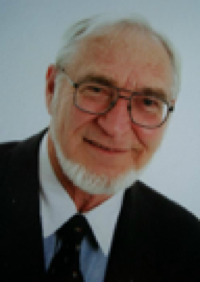Our People

Dr John White – Chairman (elect)
Dr John White is Executive Chairman of the Birdon Group; Chairman of Regenerative Australian Farmers and the former Chairman of Global Renewables which was formed in 2000 to pursue greenhouse gas reduction measures by providing solutions for waste reduction; and integrated technologies to develop the UR-3R (Urban Resources – Recovery, Reuse and Recycling) – a process successfully installed at Eastern Creek in Sydney.
In September 2005, Global Renewables was selected to design, build, own and operate the Lancashire Waste Partnership PFI project in the United Kingdom, with revenues of ~$6 billion processing 765,000 tpa of municipal solid waste over 25 years – the largest waste recycling project in the world.
John had extensive involvement with Woodside’s North West Shelf Offshore LNG Development and advised the Australian Government to instigate the RAN Submarine Project tenders and headed the teams that successfully tendered for the purchase of the Williamstown Naval Dockyard from the Australian Government; the completion of the Australian Frigate Project (2 FFGs) and the $5 billion ANZAC Frigate Project (10 ANZACs).
He is a director of a number of major private and listed companies and Chairman of the Australian Government’s Uranium Industry Framework and a member of the Australian Government’s Defence Procurement Board.
Dr Nicholas Charles Hope AM – Director (elect)
Dr Nicholas Hope is the former head of the Stanford Center for International Development (SCID) and its China Program at Stanford University, San Francisco, California, USA. Nick was a senior executive with the World Bank for 24 years as Director, Office of the Vice President, Europe and Central Asia; Country Director, China & Mongolia; Director, World Bank Resident Staff in Indonesia; and chief of multiple World Bank finance, industry and energy divisions.
Prior to the World Bank, Nick received an economics PhD from Princeton University and degrees from the University of Tasmania (UTas) and Oxford, which he attended as a Rhodes Scholar. Today, Nick’s research and teaching interests involve the international economy and economic policy reform in Asian economies, especially China and India where he is acknowledged a foremost global expert.
Nick is a director of the UTas Foundation, USA; an external board member of the China Institute of Public Finance, Shanghai University of Finance and Economics; a Member of the International Advisory Committee of Renmin University, School of Business and a member of the academic council of the International Finance Forum, Beijing. He was made a member of the Order of Australia in 2012 for services to global economics and serves on the Rhodes Scholar selection panel at Stanford University.


Associate Professor Dr John Leake – Director (elect)
John is a founder and Director of the Institute for International Development and related companies that address land degradation, salinity and disaster risk reduction. He has more than 30 years’ experience as an international development specialist gained from over 30 countries in Asia, the Middle East and Africa where John has undertaken over 100 consulting assignments; more than 50 being as an inter-disciplinary team leader in areas related to rural development and natural resource management and rehabilitation.
John’s PhD related to the interaction between natural resource management and fast and slow acting disasters and his masters related to participatory processes in remote area planning.
John has enjoyed experience with several the Australian Government ministries, state governments, the Asian Development Bank; the World Bank; several UN Agencies and private clients. He has been a director and principal of two of Australia’s largest consulting firms involved in rural development and natural resource management and has a lifelong interest in research and development in rural areas.
Associate Professor Victor Squires
Victor is an internationally renowned scholar in rangeland science and the writer or editor of more than 22 books and more than 100 scientific papers having edited seven volumes of the UNESCO Encyclopaedia of Life Support Systems (over 1400 pages involving 72 authors from 47 countries).
Victor has contributed his knowledge to rangeland science through academic and practical field work with peers and students in desert and or degraded rangelands in most of the prominent dry-land countries of the world including; China, the Central Asian Republics, Iran, Pakistan, USA, Australia and dry-land in Africa; Algeria, Ethiopia, Kenya, Rwanda and Namibia.
Victor has been a regular contributor to the work of the United Nation Convention for the Control of Deserts (UNCCD); the United Nations Environment Program (UNEP); particularly contributing to the ‘World Atlas of Desertification’ and engaged in influential action within the Asian Development Bank, through the “4+4 data sharing mechanism”, the World Bank and UNESCAP.
Formerly Dean of the Faculty of Natural Resources at Adelaide University and the Foundation Director of the National Key Centre for Dryland Agriculture and Land Use Systems at the then Roseworthy College, Victor was a Fellow of the East West Centre in Hawaii and is an Adjunct Professor at the University of Tucson in Arizona.


Dr Professor Sergey Shabala – Head of Science, Technology & Research
Professor Shabala leads the vibrant Stress Physiology Research group and Land & Food Division at UTas that includes post-doctoral research fellows and PhD and MSc students from eight different countries, being ranked within the top 0.5% scientists working in the area of Plant and Animal Science according to the ISI Essential Science Indicators rankings.
Sergey is a member of the ARC College of Experts and since 2016 assumed the role of the President of the Australian Society of Plant Scientists and an editor and advisory board member for five international journals (Journal of Experimental Botany; Functional Plant Biology; Plant and Soil; Frontiers in Plant Biophysics and Modelling; and Plant Signalling and Behaviour). Over the last 10 years, Sergey has reviewed over 300 papers for 61 international journals.
Sergey’s major expertise is in the area of stress physiology and membrane transport where the research focus is on plant adaptive responses to stressed environments (salinity, oxidative stress, extreme temperatures, soil acidity, drought, waterlogging, nutritional disorders, and biotic stress).
Dr Petr Karel – Director (elect)
Petr graduated from the Law Faculty of Charles University, Prague, obtaining a Ph.D. degree from the University of Economics in Prague (International Economic Relations). He also studied postgraduate courses at the King´s College, University of London.
During the period 1995–2000, Petr worked as a Manager and later as the Director of the European Commission’s project, Accession of the Czech Republic to the EU (with responsibilities for implementing the EU Single market in the area of Financial Markets, Energy, Environment and Agriculture).
In 2000-2010 Petr was a Senior Executive in the GE Capital CEE. During 2003-2004 he worked at the European headquarters of the General Electric Company in Brussels; he was visiting lecturer at the Charles University, Prague and a key note speaker at a number of international conferences relating to EU/financial markets, export and trade.
Petr is a Member of the Ethical and Arbitration Panel of the Presidium of the Czech Banking Association and a Board Director of the British Chamber of Commerce, Prague and is the Executive director of the Australian company AustralInvest based in Melbourne/Prague/London concentrating on services in the areas of export and structured finance, international trade and cross-border investment focusing in the areas of infrastructure, energy, agriculture and engineering projects for export/cross border projects in the emerging markets for ca US$1.5 billion. over the last five years.


Gabriel Haros – Company Founder & Director
Gabriel is a former member of the Parliament of Tasmania, serving in a number of shadow portfolios and as Chairman of Committees and Chairman of the Standing Committee for Subordinate Legislation.
Commencing his working life as a journalist with the Hobart Mercury and the Melbourne Herald, Gabriel qualified as a lawyer, founding the Hobart law firm, Haros Wallace and Meade, in 1976.
A member of a prominent Tasmanian manufacturing family, Gabriel served as Secretary to the Vice-Consul for Greece for Tasmania and during the 1990’s formulated the basis for the Greening the Earth business case.
OUR (ADOPTED) CREED
A culture is not a collection of relics or ornaments, but a practical necessity, and its corruption invokes calamity. A healthy culture is a communal order of memory, insight, value, work, conviviality, reverence, aspiration. It reveals the human necessities and the human limits. It clarifies our inescapable bonds to the earth and to each other. It assures that the necessary restraints are observed, that the necessary work is done, and that it is done well.
A healthy farm culture can be based only upon familiarity and can grow only among a people soundly established upon the land; it nourishes and safe-guards a human intelligence of the earth that no amount of technology can satisfactorily replace. The growth of such a culture was once a strong possibility in the farm communities of this country. We now have only the sad remnants of those communities. If we allow another generation to pass without doing what is necessary to enhance and embolden the possibility now perishing with them, we will lose it all together. And then we will not only invoke calamity–we will deserve it.
From The Unsettling of America: Culture and Agriculture by Wendell Berry

